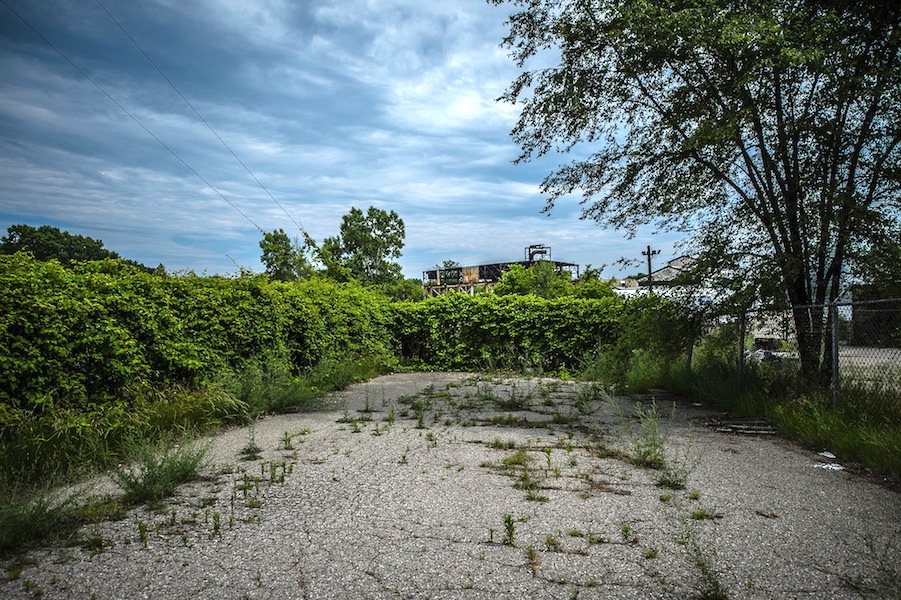
Features
Blog
Can you fit Muskegon, Michigan into a recycle bin?
February 5, 2016 | By Anthony Capkun
 Abandoned buildings lead to lower property taxes, fewer tax revenues and decreased quality of life, according to Rex LaMore, director of MSU’s Center for Community and Economic Development. Photo G.L. Kohuth.
Abandoned buildings lead to lower property taxes, fewer tax revenues and decreased quality of life, according to Rex LaMore, director of MSU’s Center for Community and Economic Development. Photo G.L. Kohuth. February 5, 2016 – Michigan State University researchers will use nearly $250,000 from the U.S. Department of Commerce to test whether recycling and repurposing building materials is an effective solution to what they call ‘economic blight’.
Rex LaMore, director of MSU’s Center for Community and Economic Development, will partner with the West Michigan Shoreline Regional Planning Commission on a newly emerging research area they’ve termed “domicology”—the study of policies, practices and consequences of human structural abandonment.
The test site is Muskegon, Mich., a city suffering from more than 3000 abandoned residential and commercial properties that, LaMore says, has resulted in lower property values, fewer tax revenues and decreased quality of life. Building demolition may seem the best option, but what if Muskegon instead became a “deconstruction zone” in which materials are repurposed rather than discarded?
“The current practice of demolishing abandoned structures is wasteful, so rather than landfilling this vast amount of material, our project seeks ways to reuse and resale this waste, create economic opportunity, reduce environmental degradation and revitalize distressed Great Lakes communities,” LaMore said.
In addition, property deconstruction is a labour-intensive process requiring skilled and trained workers, say researchers, so it could provide much-needed jobs to Muskegon’s unemployed workforce.
For the study, a multidisciplinary team of students, scholars and community partners will:
• Identify the volume and availability of structural materials from abandoned properties in the Midwest and determine whether the market exists for resale and reuse.
• Identify private sector industries that have the potential to maximize the repurposing of materials.
• Identify the transportation, collection, processing and distribution infrastructure needed to support a deconstruction cluster.
• Identify the skilled labour needs to support a deconstruction cluster.
• Assess the leadership and regulatory opportunities and challenges that may enhance the development of the emerging economic sector.
“The potential economic impact for the reuse, recycling and reprocessing of building structural material is currently undervalued in many distressed communities, but a deconstruction sector in Muskegon could achieve an economic scale not heretofore seen in the U.S.,” LaMore said.
It makes you wonder whether we’re seeing the emergence of a whole new industry (i.e. City Recyclers) or this is just an investigation to which we already know the ending. They don’t seem to address the matter of the brownfield that is left behind after any recycling/repurposing attempt, so will this ever become remotely cost-effective solution, or just a political and legal quagmire?
— Anthony Capkun, Editor • acapkun@annexweb.com •
PHOTO: Abandoned buildings lead to lower property taxes, fewer tax revenues and decreased quality of life, according to Rex LaMore, director of MSU’s Center for Community and Economic Development. Photo G.L. Kohuth.
Print this page